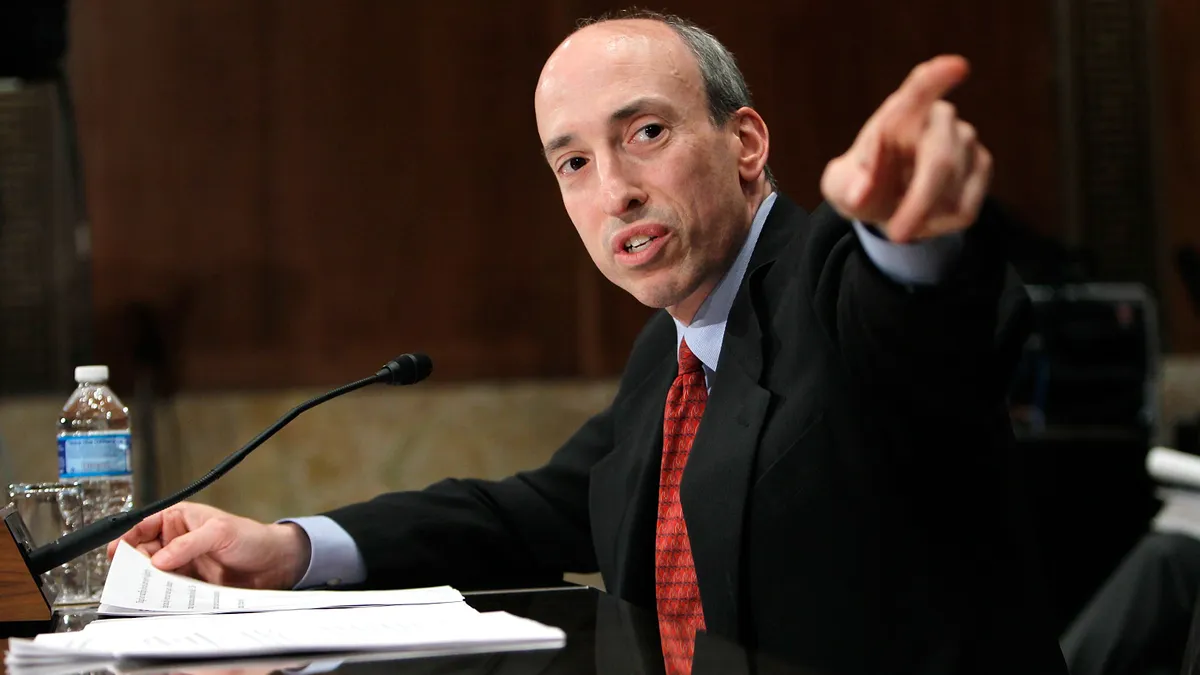Dive Brief:
- The Securities and Exchange Commission passed its long-awaited climate-risk disclosure rule Wednesday, adopting the rule by a 3-2 vote. The final rule drops a controversial requirement that would have required companies to disclose their supplier emissions.
- Gensler was joined in voting to approve the rule by Commissioners Caroline Crenshaw and Jaime Lizárraga, while Commissioners Hester Peirce and Mark Uyeda voted no. The 886-page rule was posted on the SEC’s site Wednesday and is headed to the Federal Register.
- The tight vote count — compared to the unanimous approval of the Commission’s only other agenda item for the day — came as the rule was criticized by both its supporters and detractors for not going far enough and going too far, respectively. The rule will take effect 60 days after it is posted on the register.
Dive Insight:
The omission of scope 3 reporting requirements from the SEC’s final rule is a win for agriculture groups, who have warned that the cost of compliance would place onerous burdens particularly on small farms.
“Farmers are committed to protecting the natural resources they’ve been entrusted with, and they continue to advance climate-smart agriculture, but they cannot afford to hire compliance officers just to handle SEC reporting requirements,” American Farm Bureau Federation President Zippy Duvall said in a statement following the vote.
Approval of the final rule came down to the SEC’s newest commissioner, Lizárraga, who cast the deciding vote. Gensler said while the agency does not have a climate remit, a range of investors have indicated they are using climate-related risks to make decisions and relying on companies’ disclosures as part of that process.
SEC Chief Economist Jessica Wachter, also director of the Division of Economic and Risk Analysis, said at the hearing that while as much as 90% of large companies release sustainability reports, much of the information is conveyed outside of SEC filings.
“The lack of a common reporting framework makes all of these climate related disclosures difficult to compare,” Wachter said. “Given this situation, we anticipate that the final rules will bring a number of benefits.”
Gensler said at Wednesday’s hearing he was “pleased” to support the adoption because it will provide investors with “consistent, comparable, decision-useful information” and issuers with “clear reporting requirements.”
Although the SEC declined to require companies to reveal their scope 3 emissions, many companies may still need to lay out the climate impact of their suppliers under a California disclosure rule approved last year. Farm groups are now turning their attention to the Golden State to challenge the state’s rule following the SEC’s decision.
“Now that the SEC has thoughtfully evaluated the issue, AFBF urges California to follow the SEC’s lead by withdrawing its Scope 3 reporting requirement for any company doing business in the state,” the trade group said in a statement.













